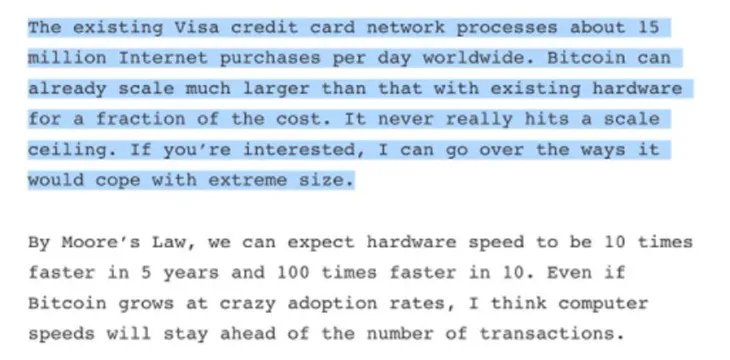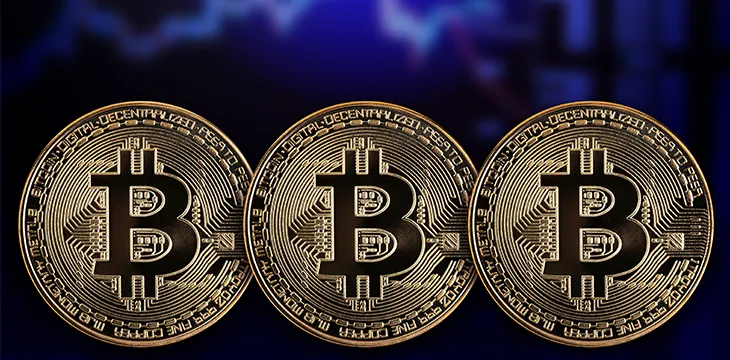|
Getting your Trinity Audio player ready...
|
The narrative of BTC as a world reserve currency has been promoted by the virtual currency’s talking heads for several years now. Yet, every time those involved in making the decisions that would lead to this outcome are asked, the narrative fails to match up with reality.
Recently, the Financial Times reported on a central bank survey conducted by Swiss bank UBS. It asked central banks around the world their thoughts on BTC replacing gold as a store of value. The answer was predictably and overwhelmingly one of scepticism.
85% of central banks dismiss digital currency assets as primary store of value
The UBS survey asked 30 central banks if digital currency assets would replace gold in their currency reserves. 85% of them said no. Only 25% of the reserve managers polled said that digital currency assets could have potential as uncorrelated assets in the global financial system.
The currently available data indicates that even this is a stretch. BTC is strongly correlated with global stock markets and other risk assets. Its recent extraordinary price rise along with other risk assets beginning in early 2020 illustrates this unavoidable fact.
The underwhelming response from the leading central banks’ reserve managers indicates that BTC is far from being accepted as a superior version of gold by the powerful financial decision-makers with the power to make it happen. The superior digital gold narrative clearly isn’t taken seriously by people in positions of power.
Despite the contradictions inherent in claiming central banks will embrace BTC while calling for it to make them obsolete at the same time, the virtual currency’s spin doctors were quick to take to social media platforms to dismiss the findings of the survey or paint them in a positive light.
Predictably, none of them mentioned how BTCs recent price plunge shows just how unsuitable it is as a store of value. As this survey shows, it’s unlikely to be embraced as such by any central bank reserve managers anytime soon.
Bitcoin is not digital gold & it can never be so
While central bankers may have alternative reasons for rejecting BTC as a replacement for real-world gold, the real reason it can never be such is that it was designed to be something else.
Bitcoin is peer-to-peer electronic cash. This has been repeatedly emphasized by its inventor Dr. Craig Wright and those involved in restoring Bitcoin. However, it’s not necessary to rely on an appeal to authority to see why BTC can never be the digital gold. It’s self-evident once you understand how Bitcoin works.
The system will collapse without lots of on-chain transactions
Satoshi Nakamoto designed Bitcoin with a block subsidy which diminishes over time. Those familiar with the system will know that each time a miner finds a new block, they receive a reward. Every 210,000 blocks, this block subsidy is cut in half. It started at 50 bitcoins, and at the time of writing, it stands at 6.25 bitcoins.
Satoshi designed the block reward to be a temporary crutch until the electronic cash system picked up enough steam to stand alone on the basis of transaction fees. For this to occur, big blocks full of fees would be necessary to incentivize miners to act as transaction processors. Indeed, Satoshi repeatedly expressed that Bitcoin was a payment system capable of limitless scaling.

Understanding this, it is inevitable that BTC is on a collision course with destiny. When the block reward halves again and continues to do so every 210,000 blocks, miners will lose interest in pouring massive resources into attempting to secure an ever-diminishing block reward. If blocks remain small, which is touted as necessary for BTC to remain politically decentralized, fees will have to skyrocket to keep miners interested in processing network transactions.
Clearly, this is not what Satoshi Nakamoto intended when he invented Bitcoin. Considering his repeated mention of micropayments in his first-ever public post, it’s difficult to see how BTC maximalists will continue to justify ever-higher fees while still claiming BTC is Bitcoin. While some will counter that the Lightning Network will enable micropayments, it’s unclear why it’s necessary since Satoshi’s first post shows that Bitcoin was already capable of micropayments on arrival.
In summary, BTC can’t be digital gold because it was never designed to be stored in vaults like the precious metal. It requires miners to process transactions and keep Bitcoin working, and they won’t be interested in spending millions of dollars to do so if central bankers and Wall Street CEOs lock all the coins away in storage. This will only lead to the system collapsing in the long run.
Dr. Craig Wright explains how Bitcoin really works here.
Bitcoin has been restored as BSV
Thankfully, Bitcoin has been restored to its original state under the guidance of its inventor and with the help of dedicated technical experts committed to the BSV blockchain.
A system with big blocks full of increasing numbers of micro-fees is sustainable forever because it does not rely on a diminishing block reward that was never meant to last or sky-high on-chain fees that exclude most of the world from ever being able to use Bitcoin. BSV has no scaling ceiling, and therefore there’s no limit to how many transactions can fit inside blocks, eliminating the need for increased fees.
With Steve Shadders recently demonstrating 50k transactions per second at CoinGeek Zurich, it won’t be long before miners realize where the long-term money is to be made and relegate the notion of digital gold to the history books. Bitcoin is here to stay, but it won’t be locked away in vaults as a reserve asset. The central bankers are right about that.
Watch: CoinGeek Zurich panel, Bitcoin and Digital Assets – Where Should Real Value Come From?

 06-06-2025
06-06-2025 





